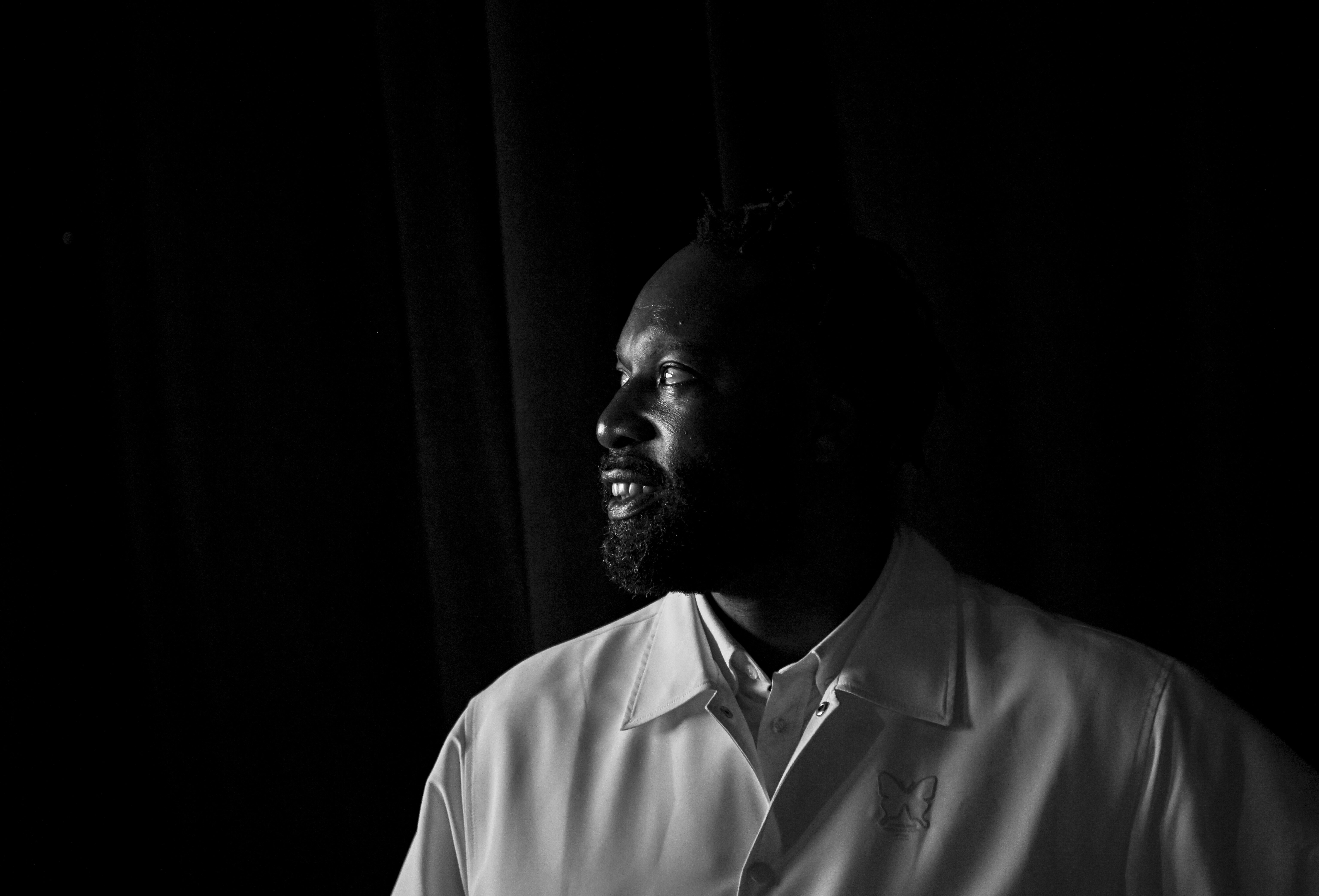Securing the Future of Collectibles with Baron Davis & Evan Vandenberg
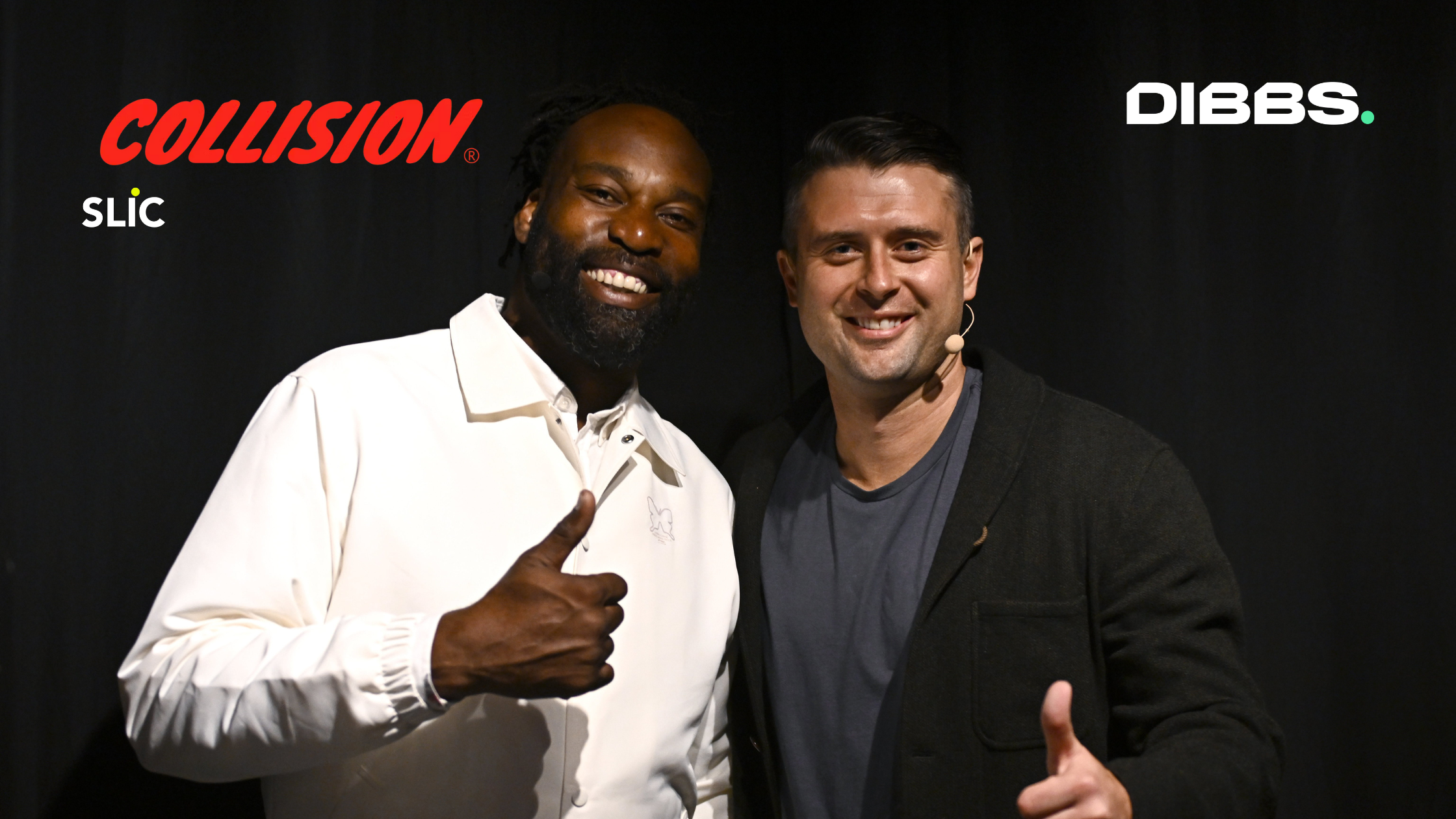
In recent years, the sports collectibles landscape has rapidly changed. Projects without collectibility, repeatability, and utility have fallen by the wayside. A few weeks ago, NBA legend Baron Davis and Dibbs co-founder and CEO Evan Vandenberg explored the current collectibles landscape at Collision Conference, one of the largest tech conferences in the world.
Baron discusses his passion for collectibles and how he sees the future of the industry. He believes that collectibles should be more than just digital objects. They should also provide access, utility, and storytelling elements. Evan shares his vision for Dibbs' Taas (Tokenization-as-a-Service) solution, a platform that allows brands to tokenize their high-value items as physical-backed digital collectibles on the blockchain. He believes that Dibbs can revolutionize the collectibles industry by making it more accessible, efficient, and global.
Check out exclusive images from the conversation, and read on to hear how Baron discussed the key factors for successful collectibles projects for today and tomorrow.
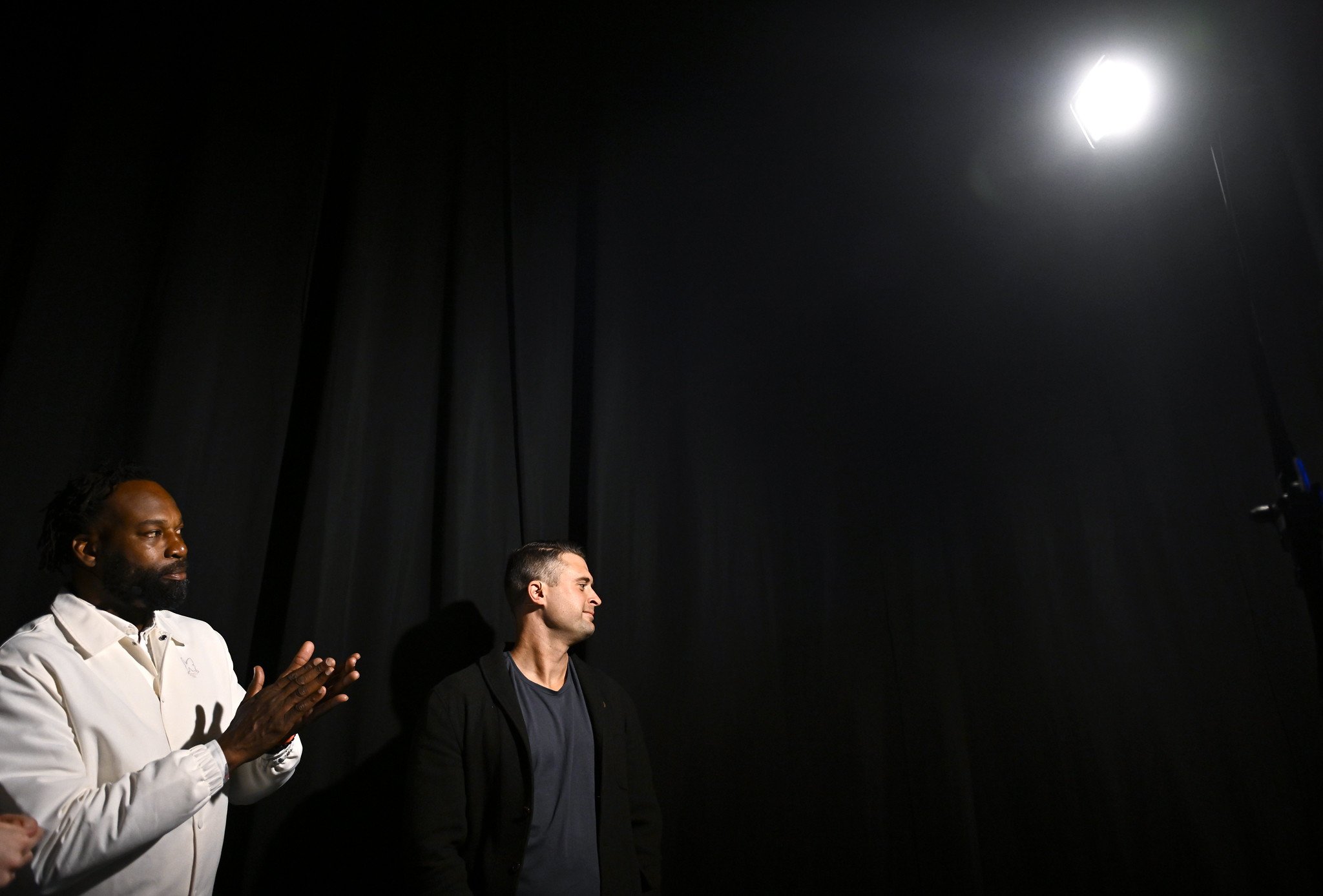
Baron's Introduction to Collectibles
Evan
I wanted to kinda introduce you in a little bit of a different light. Look, I’m a huge Warrior fans, so this is very, very cool for me. But also, I've gotten to know Baron in a very different way. I'm not sure that people know what you have been doing since retiring from the league, outside basketball. He's a genuine Renaissance guy. He and I have conversations and basketball maybe comes up once, but his whole thing is creativity. He comes up with insane ideas and, secondarily, business strategy, which helps me think about my own business, let alone his. I’ll give a brief intro: he’s an investor, entrepreneur, he’s got companies under his portfolio, like Vitamin Water.
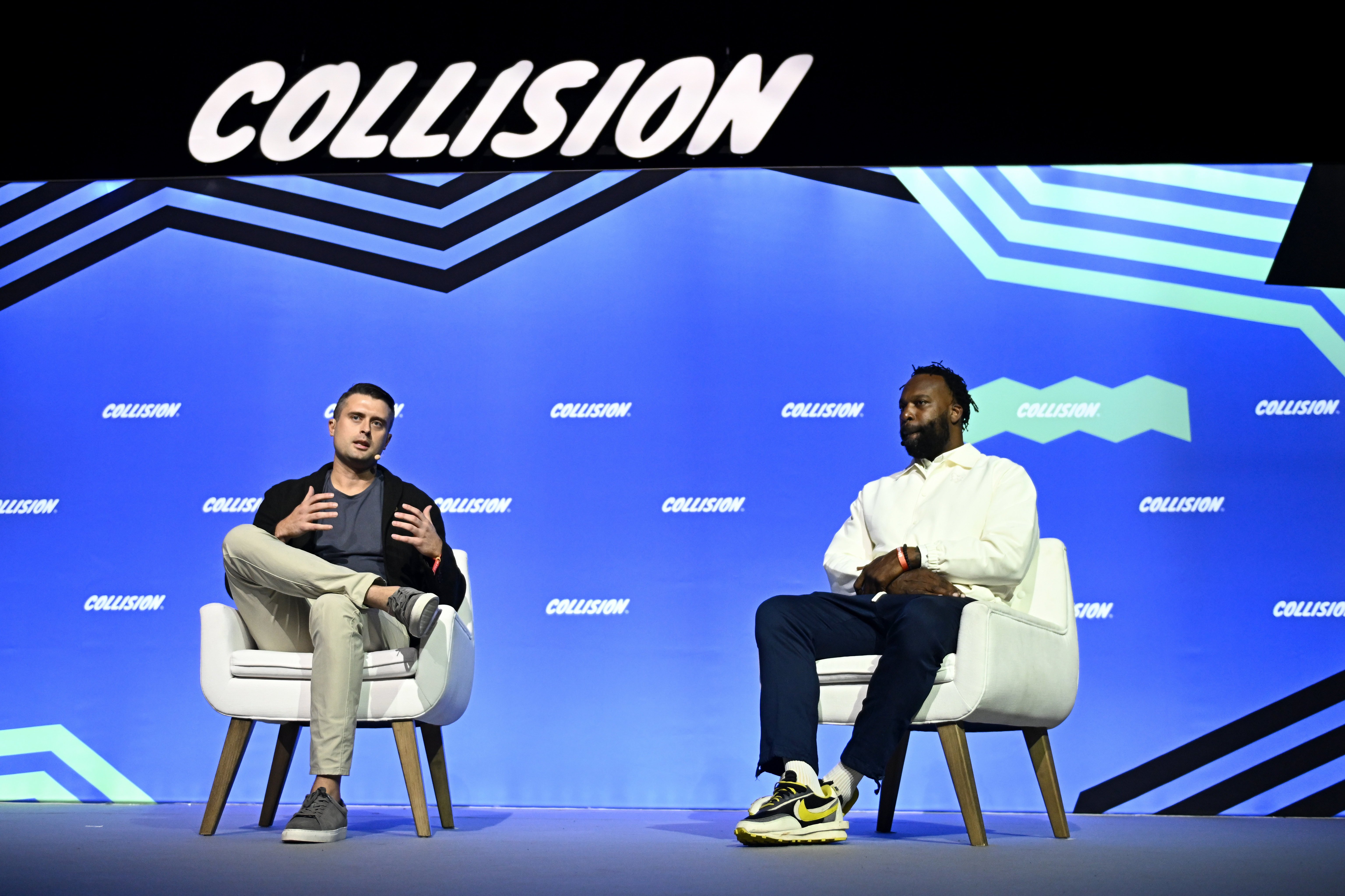
Baron
I’ve got a film coming out [on July 7th]. I'm in a movie: Joy Ride. Check it out.
We're just having fun, man. I enjoy a lot of our conversations around sports technology, whether it's AI collectibles, just thinking about your platform and like when we're talking about real-life use cases. It's like when you're thinking about sports, sports collectibles, digital – sports is a real-life use case. A real-life utility. And you know, where I come from from being an athlete, there's a huge connection and disconnection between the athlete, and the teams, and their true fans that are not in the arena. So, for us, more so like how do we come up with ideas for ways that we can reach this fandom, but also show in our heart of hearts as athletes, teams, and creators who we are and who we wanted to be when we grew up.
Evan
The theme of the rest of this conversation is gonna be around collectibles more generally, kinda how they apply to sports, but really creators and brands. When I say brands, I mean human beings now to, you know, artists, whatever it may be. And really kinda thinking about what's next? You've got trading cards, got a lot of cool, traditional collectibles, but now everybody's on smartphones, they're on the internet. We're gonna talk about NFTs, but your version of that.
My first jersey, my first collectible I ever bought was yours with my money in high school. We loved the Warriors. Me and my buddies used to jump on the BART train to go up to Oakland and watch you guys play. So first foremost, let's just kind of warm up with this: What was your first introduction to collectibles?
Baron
I would say for me, toys. When I got to the NBA, I was nineteen-years-old, and I was still playing with toys. I lived across the street from a mall and they had a dope record store and a dope toy store. And it was like, all right, I can go buy CDs and vinyls, but I can also buy toys. So, I bought a lot of toys and at the same time, I would collect shoes. I would go to a shoe store and just try and buy shoes that I thought nobody would wear. I was signed to Nike, so I would just ask for the Nikes that other players had, or I think it's called Player Signature shoes, and things like that. But as far as spending my money, I spent my money on Garbage Pail Kids stickers. I spent my money on Little Rascals DVDs and Little Rascals cassette tapes. I have the whole “I love Lucy” Anthology. And then, He-man – I'm a massive He-man stan. I love toys, I mean, I got kids now.
Subscribe to get our best content in your inbox
By clicking “Submit” you agree to Dibbs
Privacy Policy and
consent to Dibbs using your contact data for newsletter purposes.
Rapid fire: "First or Favorite"
Evan
We're gonna do one last segment on you and your collecting kinda experience. We're gonna call this one “First Or Favorite.” So the first thing you ever collected, or favorite thing. I’m gonna give you a category for rapid fire. We're gonna start with shoes from a collecting standpoint.
Baron
McDonald's All-American Grant Hill Fila’s. I still have those. Don't say anything. <laugh>
Evan
<laugh> Oh, yeah! Alright, so cards. Sports cards.
Baron
Cards. Oh, that's how I learned basketball through basketball cards. I don't think any of my basketball cards are in good condition. I do have a Michael Jordan rookie card. Nah, I’m just playing. I wish! I have boxes and boxes of cards from when I was a kid ‘cause our school teacher would reward us with cards, basketball cards, baseball cards when we do something good. I should do “breaking,” or something like that?
Evan
Yeah. A “break.” Alright, last one. NFTs. Your favorite one that you purchased, owned, collected in the last couple of years.
Baron
My favorite NFT is Club E11even.
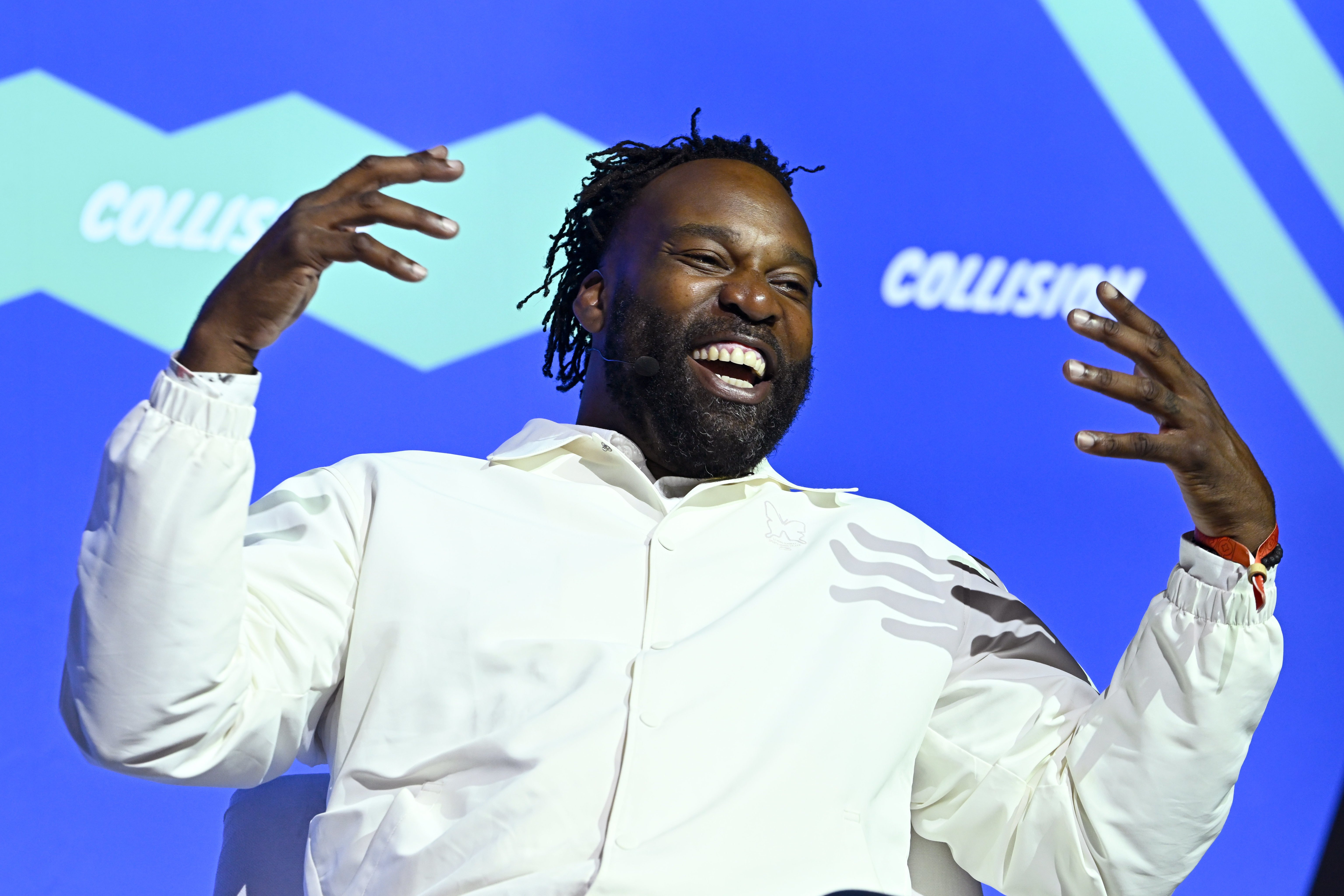
Evan
<laugh>. Alright. <laugh>.
Baron
I liked it because it had a real use case. I would say NFTs also I do like is Boss Ladies. What I like with NFTs is the access, so who are you dealing with and what do you get from it from a community, you know? And that's actually the people who are doing founder things.
Utility: The Convergence Between Collectibles and Technology
Evan
Well hey, that's actually the right idea, and the meat of this conversation is, when we talk about collectibles, I think people kinda know traditional collectibles, right? We can define those quickly. That's your shoes, your cards, your coins, and stamps, right? There's this whole $450 billion market annually trading a year. Huge market and growing in interest. But then there's been this convergence of technology. Technology is something that always gives a lot of benefits. And I think what would be interesting to get your perspective on is what are the key things, utility that can be added, what's exciting in this space from the perspective of “hey, this is more than just a toy, more than just cardboard,” and the utility that can be provided by some of this tech.
Baron
For me, it's just the ability to save, store, and buy, and then archive, as well. So, when we're thinking about, you know, digital collectibles, NFTs, whatever you wanna call ‘em, for us, it's more so like things in the physical world. Like you can collect physical collectibles, but let's take ticketing, for example. You used to go to an NBA game. For a player they would have their picture on the ticket, you would get a ticket pack, you would tear the ticket, you would put the ticket in a photo album and you would save that experience, right? Now, through Ticketmaster, they scan you – boop – you go in, and you pay no attention to the ticket. And it's almost like you're numb, like you're not getting anything outside of, “this gives me access into the event.”
So, when you're thinking about ticketing or photos, it could be something that is very fruitful and has a storytelling element to it. The ticket is not just a revenue model, but it's an additive to the fan. It's an additive to the play. So that's how the team can create storyline and storytell. It gives you a moment and it authenticates your experience. It says, “I was there. Here's what I'm doing. Here's what I can talk about and I can reference this in my archive.” So for someone like myself thinking about digital assets and collectibles, I'm on my phone all the time, right? I wanna be able to go on my phone, and if I want to go to this club? Scan. if I wanna go play basketball with these people? Scan. If I wanna go into a Zoom and listen to sports stories? Scan. Other than that, I'd be in my email, or text, and somebody would be sending me a linked post. Go to the posts. Man, just gimme a set of tools, and if those collectibles are a reference to my life, then I think that's where the whole digital collecting thing is really gonna become extremely important for whether it's a team, whether it’s a musician, whether it's an artist, or somebody making a movie, you can add so many different experiential elements to it. That's why it's important to me.
Evan
To summarize that: a general theme and we share the same thesis on this is, collectibles at their basis is passion. There’s a social kinda community element to it. And, of course, there’s the financial piece. These are the core elements that make something a collectible – that, and scarcity. What I think you're talking about here is, is taking the collectible, which may come from a club, it may be a brand, but it's something that you care about that you align with, and actually giving something of value. The NFT thing, on its face, has great value. Everything you mentioned: the ownership value, archiving, delivery, authentication, all of this on your phone, which may be the most important piece. The concept here with utility is these brands actually have themes and experiences that are tied to them. It’s beyond time that the industry at large starts to do something more than just creating basic consumer profit. That's interesting to hear.
Baron
Talk about it from your point of view, ‘cause you have a collectible spot.
Evan
<laugh>. Yeah.
Baron
I feel like the people should know what was your thought in building Dibbs looking at this collectible world. What inspired you to build in this direction?
Evan
Myself and my business partner ran the world's largest PC in-game item platform. Hundreds of businesses got built on top of it. The cool thing is, we had people buying and selling things they cared about all over the world. It was a humongous, humongous business. Terribly inefficient, though. It was our platform only, and you couldn't do anything else besides what we said you could do. And then NFTs kinda emerged right at that time. Me and my business partner pieced it together for Dibbs and said, “Let's take something that's great for certain things – the technology, this program that can be used for really cool stuff – that is also the best way right now globally on a digital platform to transfer ownership.” And that was the key function for us. We don't need all these middlemen, like ourselves. Horrible.
We’re creating the first regulated entity. Vaulting from soup to nuts. We take custody of physical collectibles. We’ll do ticketing and stuff, I think, as well, here shortly, but we're about to pick that out where you don't have to worry about the regulatory piece. You know for certain that we have all the stuff the way you want it. We create all the content around the asset and then we give it to people like you. That's kind where we've been jamming. We just wanna take care of all the BS that is putting a physical asset on the blockchain, which is far more complicated than just taking photos, unfortunately.
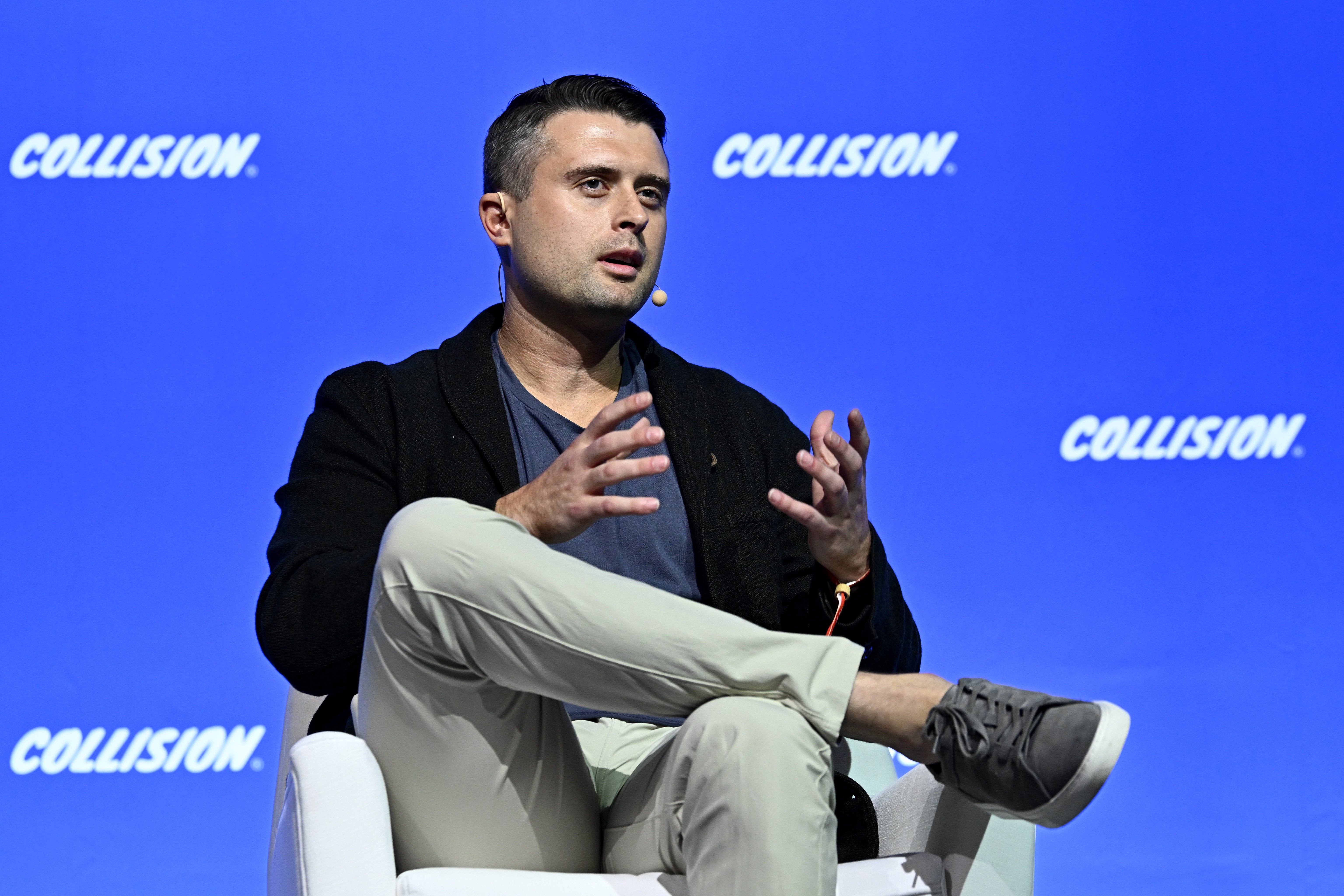
Evan
Let's kind keep within that vein. What's going on with SLiC? You actually are creating and manufacturing. You're creating IP, creating worlds, right? And that's like your baby. And then you got IP in the form of physical and digital collectibles.
Baron
For SLiC, which is Sports Lifestyle in Culture, the goal was to look at sports as its own industry – as its own entertainment industry, as its own fashion industry, and as its own medical industry. Really in sports now, the culmination of all of these different industries actually happens on the court, at practice, in commercials. So we know this space, so for SLiC, we were looking at what you were talking about. How do we build vaults for creators? I am a serial creator. I have creative schizophrenia, so that means I create all, all the time. I'm just macro- and micro-creating with different people and collaborating.vThe thought with SLiC is if you can build a locker and a vault where now you can work out of and that becomes your marketplace for distribution of your content, but also your dashboard, how you collaborate and interact, or save, store, and license back to distribution.
How do we curate the best creators? How do we give them their own locker and vault? And then how do we start to collaborate with them to bring about their projects to life? If it's a brand, how do we market them? How do we give them the strategy? With that production budget, we're able to find 20, 30 creators that would just love the opportunity to create under a theme or structure. That's where you know, you and I always have conversations is really, I would say at the core of SLiC, it's all about stories. Stories and your ability to license out. We'll pick you up, market, and help you find the right ecosystem and people that you need. That is where Dibbs and SLiC go hand in hand, because you’re thinking about, “What are my stories? What is valuable to me? What did I make? What did I get? What did somebody give me? What did I purchase and buy?” With SLiC, I think that when we look at the creator, look at the publisher, when we look at the brand, or the startup company, and start to market it and create content, We want them to be able to have their own mini marketplace so they can see the work that they've done, archive work that they've done, and reference that back into something that’s trending in the market.
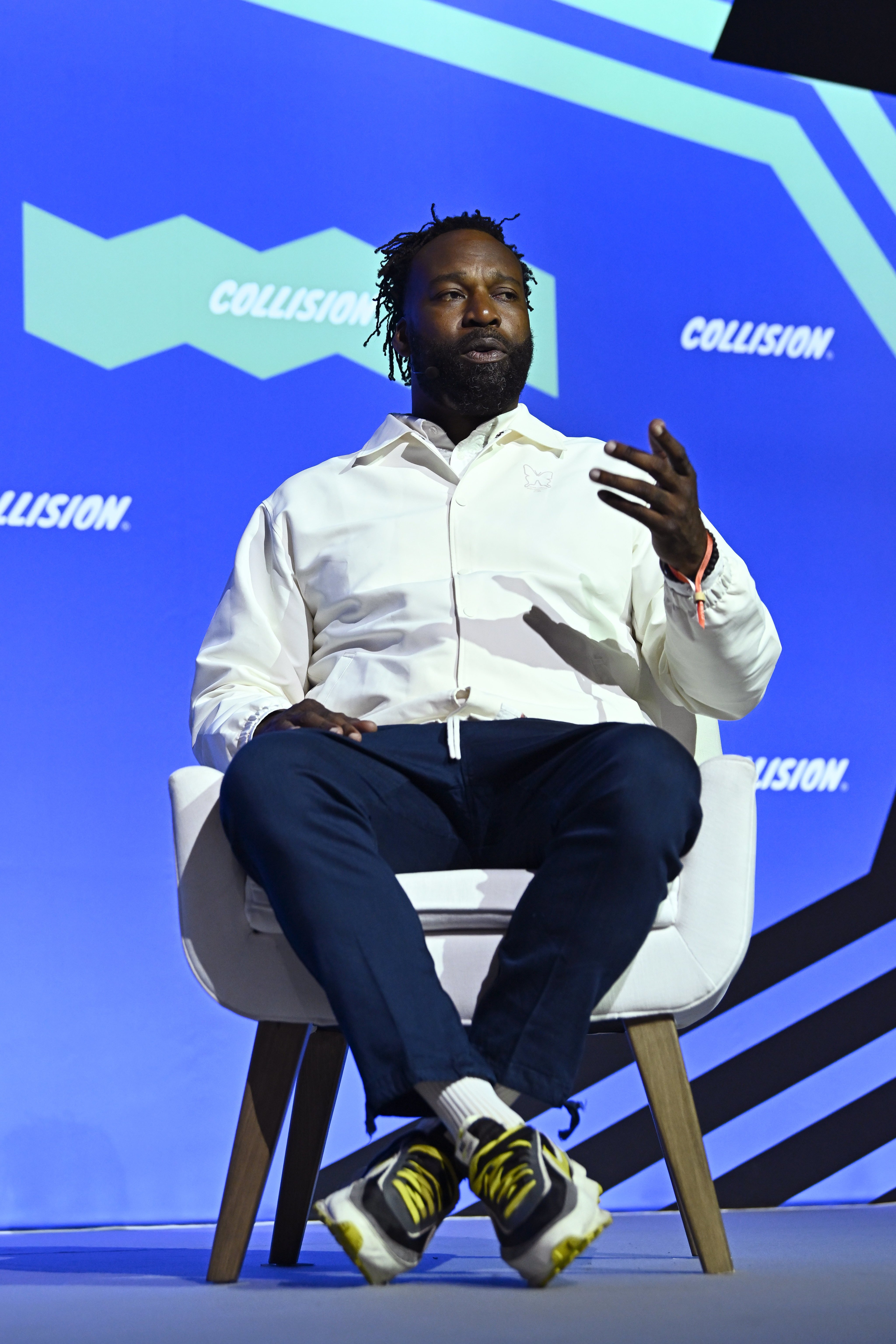
Evan
Yeah, that makes a lot of sense. By the way, I know this is sports, but you’ve got a lot of stuff going on in the music and film space, as well. I think one thing that comes out of that, and what you’re talking about is it comes down to storytelling. There's so many avenues, especially for the NBA. Certainly from a cultural standpoint, they're so ingrained, and not to bury it, but giving them an actual way to not just monetize – we're not trying to make this capitalistic – but tell their story, come to you to work on that sort of thing, and then come up with cool stuff that represents that, that allows the fans to get involved.
Allies for Athletes
Baron
For the athlete, a lot of times, we just want our story to be heard. And everything that we do is bio, in a snapshot, and the way that the system wants to project us. You know, even when I played in the league, I was one of the first people to make a movie while I was playing. I did the Vitamin Water deal. Instead of taking a traditional beverage deal. I left Reebok and signed a deal with Li Ning, a Chinese shoe company. So, a lot of times, your bio, from, let's say the NBA’s perspective, from the music perspective, is only gonna operate in one direction. Your fans, if they're true fans, they're gonna learn more about you and they're gonna appreciate the other. That is what fans want to know. Especially for athletes, the basketball card is gonna transition from just, “Here's my information and my stats,” to, “Here’s my information and stats, and this is what I like to do, here's my content, and here's what I’m about.” You know what I mean? That's actually power. Think about it.
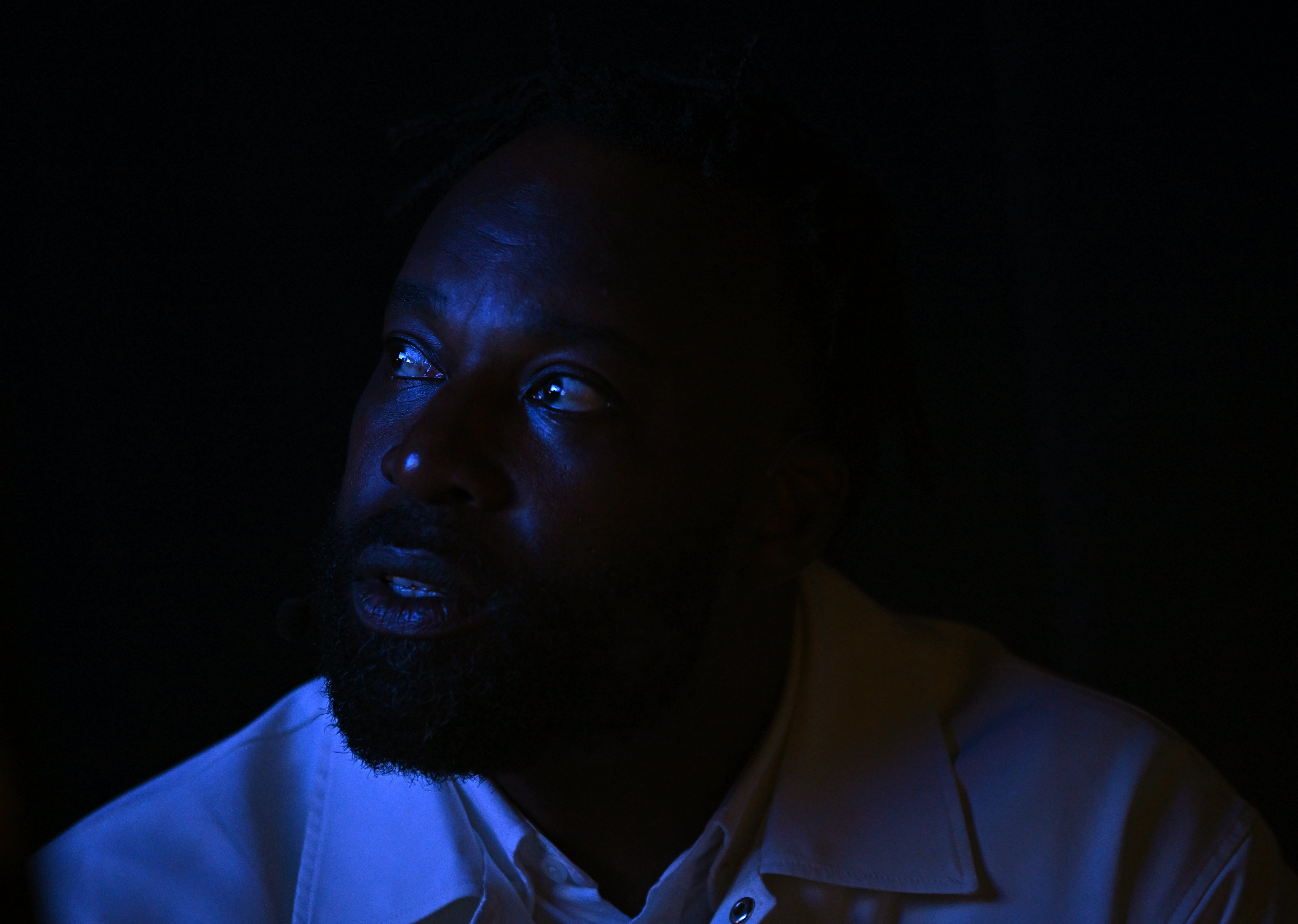
Evan
We can all Google "Baron Davis, season whatever" stats. I'm not trying to knock on cards, but think about how different that is now. How much more people want to get to know about these athletes, make these things be more representative of their story, or like just what they like to do. All sorts of different angles you could take.
Baron
Going back to images, right? Collecting Topps and Fleer, you bought the card and you love the card and that image, you know, is stained into your memory, you know what I mean? ‘Cause that was your primary access to the NBA, right? ‘Cause the NBA wasn’t on TV in 1986. It was on cable. Games were barely being shown on primetime television, so that was your first entry point. Then it was the magazine, then you had to actually go to the game, and then radio, and then you would see it. Like the Lakers, you would see on KCAL9, but we only gotta see other teams through the Lakers or through watching clips. There were no games on ESPN and we didn't have cable.
Evan
Wow.
Baron
Thinking about that, now the market is kinda flooded. What is going to be your first identification of these new athletes? [NBA] Top Shot tried it. With Top Shot, they became like, “We're the platform for everybody,” but their curation was off, and there's nothing worse than buying a digital card if that's your first issue level to this identification of basketball, and it's not coming from the player. So that's the problem with Top Shot. You can release a Baron Davis Top Shot all day, but I guarantee you that's not in my top 10 favorite highlights. Now, if I had a 10-pack of my highlights that I wanted to send to my fans, then it's coming from me. That's gonna be the next revolution of the card, or the digital collectible: “Here I am, I'm Baron Davis. Here's my mini doc. Here are the pictures that I love. Here's the access to a meet-and-greet at All-Star weekend, at Collision, at Web Summit.” And so now, I would have more responsibility, but the fan has way more access.
Whether it's my podcast, radio show, whatever I'm doing, that collectible should be able to alert that fan about what their favorite player is doing and articulate that in a story.
Evan
You're actually unique for all sorts of reasons, and you're dealing with artists across the board too, on the music side. Would you say athletes are willing to do this? Is it really the companies kinda holding this reality back because it's just too lucrative and too easy to mass produce print and just do something that's repeatable, versus stepping up and kind of working with the players themselves, their brand, whatever it may be?
Baron
Well, I think athletes need allies, people like yourself, other platforms, investors, or operators. A lot of time, we have the ideas, we have the resources, and the connections, but other times you just need allies. People who can build back in, people who can market, and sell, and then that kind of removes this barrier of having to rely on the league to build your brand for you.
Evan
Baron Davis, everybody! Thank you so much.
